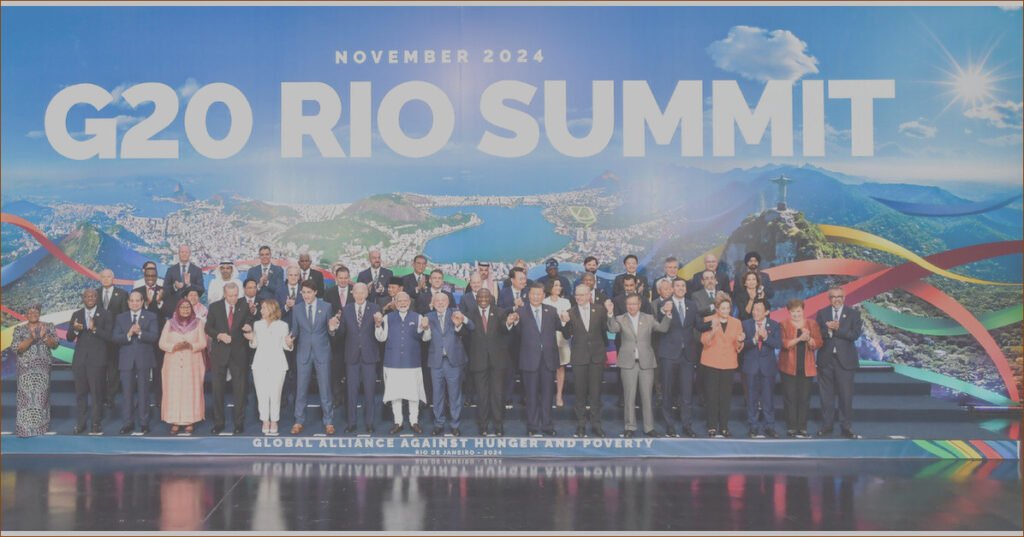BEIJING, Nov. 22, 2024 — In a world increasingly characterized by division and fragmentation, analysts accentuate China’s robust efforts aimed at assisting developing nations within the framework of global economic governance. This discourse was underscored by President Xi Jinping during the recently concluded 19th G20 Summit, where he articulated a vision for fostering a more equitable international order.
Held in the vibrant city of Rio de Janeiro, Brazil, the summit unfolded against a backdrop of complex geopolitical shifts and mounting economic uncertainties. It served as a crucial platform for global leaders, uniting them in the pursuit of collaborative solutions to pressing issues like economic stagnation, trade disruptions, food insecurity, and climate governance—all the while emphasizing the necessary reform of multilateral institutions.
Xi’s prominence as the leader of the world’s second-largest economy and the largest developing nation was palpable throughout the discussions. His address was a clarion call for high-quality Belt and Road cooperation and a renewed commitment to the Global Development Initiative. He advocated practical cooperation to aid the Global South through initiatives targeting poverty alleviation and food security.
Moreover, Xi’s vision extended to enhancing global governance across several dimensions — economic, financial, trade, digital, and ecological. He enjoined world leaders to pivot towards a globally cooperative and stable economic landscape, underpinned by innovation and eco-consciousness.
Evandro Menezes de Carvalho, an esteemed professor of international law at Fluminense Federal University, noted Xi’s strategic emphasis on inclusive governance. He remarked, “China is demonstrating its commitment to fostering a more inclusive international order, especially through substantial investments in green technology and environmental protection.”
The discussions at the summit reflected an acute awareness of the nuances of global governance, particularly as it pertains to the experiences and necessities of developing countries. The interplay between digital and ecological governance, as articulated by Carvalho, could indeed forge new pathways for humanity’s future if adeptly guided towards common goods.
Under Brazil’s leadership, the summit adopted the resolute theme: “Building a Just World and a Sustainable Planet,” concentrating on imperative topics such as energy transitions, sustainable development, and the necessity for reform in multilateral institutions.
China, standing valiantly on behalf of the Global South, has been a vocal advocate for increased representation of developing nations. This dedication resonates throughout its policies, from endorsing the Five Principles of Peaceful Coexistence to championing new types of international relations that embrace win-win cooperation.
At the summit, Xi urged a revolutionary re-evaluation of the World Bank and International Monetary Fund structures, advocating for reforms that elevate the voices of developing nations. Together with Brazil and South Africa, he also introduced an Initiative on International Cooperation in Open Science, aimed at granting the Global South better access to advancements in science, technology, and innovation.
Scholars like Anthony Moretti and Mehmood Ul Hassan Khan echoed and supported Xi’s sentiments, noting that the isolationism prevalent in today’s rhetoric is counterproductive. They emphasized the necessity for a collaborative and inclusive international economic environment, particularly crucial for the developing world.
As global crises such as the Ukraine conflict and the Palestine-Israel situation linger, Xi emphasized that effective global security governance is integral to overarching global governance. A coalition termed “friends for peace,” initiated by China and Brazil with other Global South nations, seeks to amplify voices advocating for peace in these tumultuous regions.
Unveiling initiatives such as the Global Development Initiative and Belt and Road Initiative, Xi illuminated pathways that counteract unilateralism and foster mutual development. He urged G20 members to perceive one another’s advancements as opportunities rather than threats, reinforcing a unified commitment to international norms rooted in the UN Charter.
In the culmination of this gathering, the leaders of the G20 pledged unwavering commitment to reforming the global governance system. They acknowledged the urgent need for a more representative and effective multilateral framework, pledging to reevaluate the UN Security Council to better reflect the realities of the 21st century.
As the threads of these expansive discussions weave into the fabric of global relations, there emerges a glimmer of hope that the ideals of multilateralism and inclusivity may yet flourish, bolstered by the cooperative spirit encapsulated at Rio’s G20 Summit.

